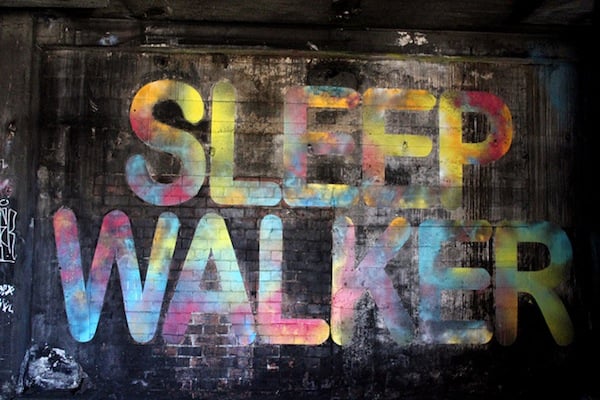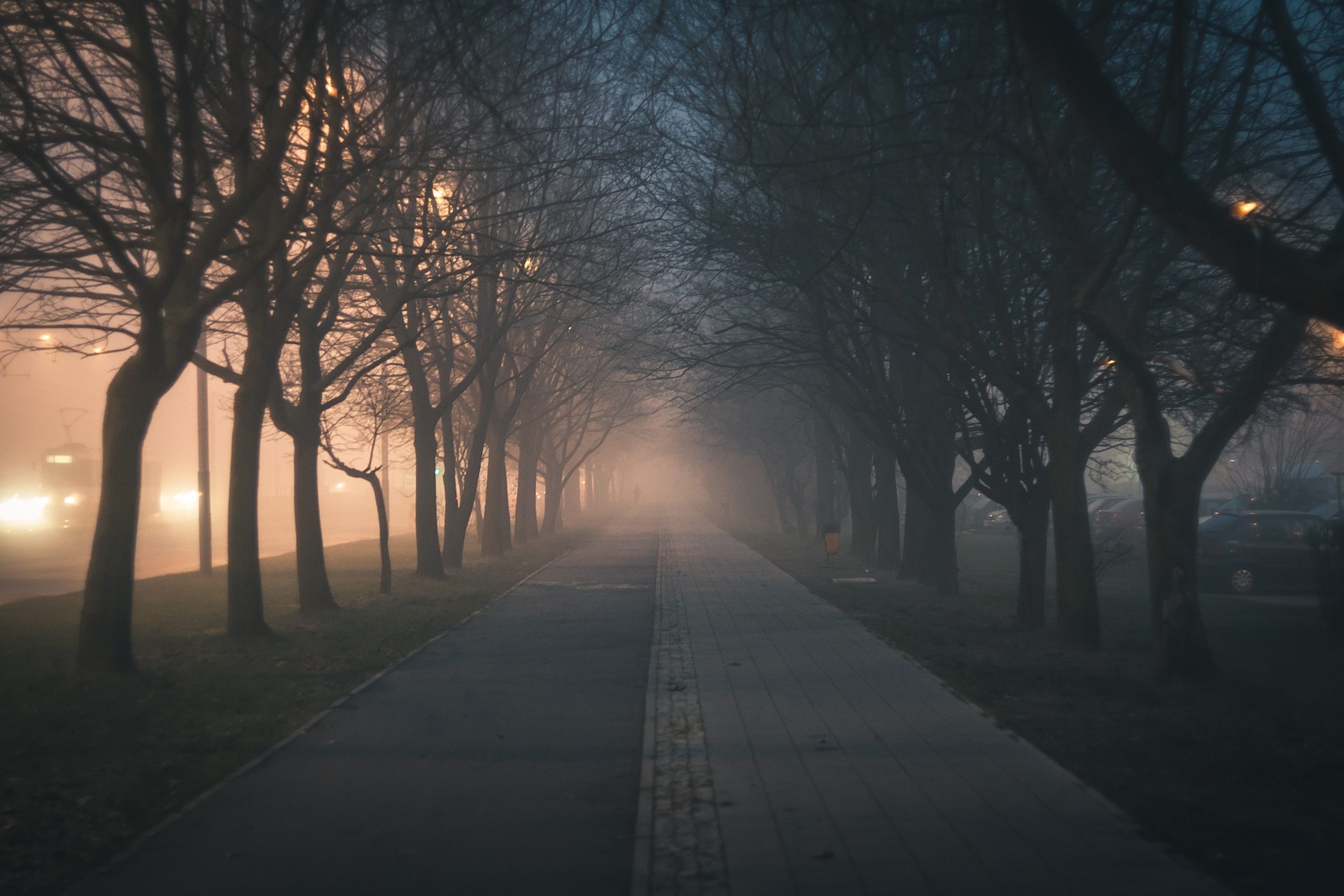If you’ve ever woken up while doing something other than laying in bed—or lived with someone who has—you know that sleepwalking can be more than a little disorienting.
But why does sleepwalking happen in the first place, and what does it mean for the people who do it? Here is a look at some of the fascinating facts behind this weird, zombie-like state.
What Is Sleepwalking?

Sleepwalking, or somnambulism, is a behavior disorder that takes place during the deepest stage of sleep. It usually occurs within one to two hours after falling asleep.
And despite the name, it can involve a lot more than just puttering around while conked out. Most sleepwalking episodes last for several minutes, and during that time, a lot can happen. Some of the things that sleepwalkers are known to do:
- Sit up in bed and look around in a confused manner
- Talk or shout
- Bolt from bed and run away
- Begin daily routines that aren’t usually done at night, like getting dressed or texting in sleep
- Eat
- Drive
- Perform strange behaviors, like urinate in a trashcan, move furniture around, or climb out of a window.
No matter what they’re doing, a sleepwalker will usually have their eyes open, with a confused, glassy stare. Even so, they’re really and truly asleep, which means they probably won’t remember anything about the incident if you ask them about it the next day.
“What is interesting about brain activity during sleepwalking is that along with behavioral observation of partial arousal, there is an unusual occurrence of wake- and sleep-like activity within many areas of the brain, during these episodes. Some areas of the brain appear to be asleep whilst other appear ‘awake,’” notes Dr. Nayantara Santhi.
Why Do People Sleepwalk?
Sleepwalking is most common in children, especially those with sleep apnea or who experience bedwetting. But plenty of adults do it as well. According to the National Sleep Foundation, Verified Source National Sleep Foundation Nonprofit focused on educating about sleep health. View source up to 15% of the general population sleepwalks.
What makes certain people more prone to sleepwalking than others? Like other sleep disorders, it’s something that tends to run in families.
In fact, having a parent who sleepwalks makes you three times more likely to become a sleepwalker yourself, and if both parents sleepwalk you’re seven times more likely, according to a 2015 study.
Environmental factors also play a role. Being especially stressed or anxious, running low on sleep, or falling victim to chaotic sleep schedules can all increase your risk.
Certain Verified Source Mayo Clinic Ranked #1 hospital by U.S. News & World Report and one of the most trusted medical institutions in the world. The staff is committed to integrated patient care, education, and research. View source medical conditions Verified Source Medline Plus Online resource offered by the National Library of Medicine and part of the National Institutes of Health. View source can increase your odds for sleepwalking, too, including fever, abnormal heart rhythm, acid reflux, nighttime asthma, nighttime seizures, sleep apnea, and psychiatric disorders like Verified Source National Library of Medicine (NIH) World’s largest medical library, making biomedical data and information more accessible. View source post-traumatic stress disorder.Is Sleepwalking Bad for You?

According to the Mayo Clinic, Verified Source Mayo Clinic Ranked #1 hospital by U.S. News & World Report and one of the most trusted medical institutions in the world. The staff is committed to integrated patient care, education, and research. View source occasional sleepwalking episodes aren’t a big deal. But you should talk to your doctor if they start occurring more than once or twice a week, lead to a dangerous activity that injures you or others, or causes significant sleep disruption.
Here’s why: Sleepwalkers might be a-snoozin’ while they’re a-strollin’, but research suggests that regular sleepwalking episodes can negatively affect your sleep—and more.
In a 2013 SLEEP study Verified Source American Academy of Sleep Medicine Society focused on sleep medicine and disorders, and the AASM is who authorizes U.S. sleep medicine facilities. SLEEP study" class="src-popup-link"> View source of 200 adults, those who experienced frequent sleepwalking episodes were more likely to feel sleepy or fatigued during the day, have trouble sleeping at night, and experience symptoms of anxiety and depression.
What’s more, all that unconscious moving created a real potential for getting hurt. Nearly a fifth of sleepwalkers in the study reported injuries like bruises, nosebleeds, and fractures. One participant even sustained multiple fractures and serious head trauma after jumping out of a third-floor window.
Can You Wake a Sleepwalker?
Some people think that you shouldn’t rouse a sleepwalker because it could shock or even kill them. But experts say the chances of that happening are infinitesimal—“about as likely as somebody expiring from a dream about dying,” wrote Robynne Boyd in a 2007 Mental Floss article.
More likely, a sleepwalker who’s brought back to reality would probably just be startled, disoriented, and confused. But there’s also a possibility that they could become violent and unintentionally hurt the person that woke them up.
Still, letting sleepwalkers go about their merry, zombie-like way can pose a danger to them and others. To keep everyone safe, experts recommend gently turning a sleepwalker around and helping them get back to their bed. If they resist, stay with them to make sure they steer clear of harmful objects or situations. And if you have to wake them up, do it by making a loud noise instead of shaking or touching them.
Can You Prevent Sleepwalking?

Though regular sleepwalking can pose health risks, doctors say that more often, it’s a harmless condition that tends to go away on its own. Still, there are plenty of things that you can do to lower the chances that you or a family member end up sleepwalking in the future:
- Get enough sleep. Fatigue can lead to sleepwalking. Make sure you’re getting enough shuteye so that you don’t feel tired during the day.
- Establish a relaxing bedtime routine. Whether it’s stretching, a soothing bath, or quietly reading a book, finding time to unwind can reduce sleepwalk-triggering stress.
- Find other ways to reduce stress, too. Find a way to let off steam, like exercising or talking with a friend.
- Look for patterns. Have someone note when your sleepwalking episodes occur and for how long. This can be helpful in figuring out whether certain things are triggering your sleepwalking.
Frequently Asked Questions
Do sleepwalkers remember what they do?
Many sleepwalkers have no memory of their sleepwalking episodes, likely because sleepwalking occurs during non-REM sleep, and the individual is not fully conscious or aware of their actions. However, research suggests Verified Source National Library of Medicine (NIH) World’s largest medical library, making biomedical data and information more accessible. View source that some sleepwalkers may have dream-like experiences during their episodes. They could remember some elements of their sleepwalking behavior, contrary to the previous belief of complete amnesia sleepwalkers have concerning their actions.
How serious is sleepwalking?
Sleepwalking itself is generally not considered life-threatening. However, it can pose safety risks to the sleepwalker and others. Sleepwalkers may inadvertently harm themselves by tripping, falling, or engaging in dangerous activities during episodes. In some cases, sleepwalking can also disrupt sleep patterns and lead to sleep deprivation, which can affect overall health and well-being.
Is sleepwalking a symptom of anything?
Yes, sleepwalking can be a symptom of an underlying sleep disorder known as somnambulism. It is classified as a parasomnia, which is a type of sleep disorder that involves abnormal behaviors or movements during sleep.
In some cases, sleepwalking can also be associated with other medical or psychological conditions, such as sleep apnea, restless leg syndrome, or certain medications. Sleepwalking may also be connected to anxiety, depression, and other mental health disorders that affect sleep.
Should you wake a sleepwalker?
It is generally advised not to wake a sleepwalker abruptly. Sleepwalkers are in a state of partial arousal during episodes, and waking them suddenly can be disorienting and potentially frightening. Instead, gently guide the sleepwalker back to bed, if possible, to ensure their safety. Creating a safe sleep environment with obstacles removed is essential to prevent any potential injuries during sleepwalking episodes.
What causes sleepwalking?
The exact cause of sleepwalking is not fully understood, but there are several factors that can contribute to its occurrence. Sleep deprivation, irregular sleep schedules, stress, and certain medications can increase the likelihood of sleepwalking.
It also tends to be more common in children and can have a genetic component, with a family history of sleepwalking increasing the risk. In some cases, sleepwalking may be triggered by other sleep disorders or medical conditions.
Have you or someone in your family ever-experienced sleepwalking? How did you deal with it?
About the author
Marygrace Taylor is an award-winning health writer for Amerisleep. Her commitment to sleep health is evident in her ability to consistently prioritize eight hours of sleep each night. Her in-depth interviews with industry experts, such as Ken Ceder on "Why Light is Essential for Great Sleep and Optimum Health," highlight her dedication to delivering valuable insights. Marygrace's work has been featured in reputable publications like Business Insider, Glamour, Refinery29, Metro UK, and Hunker, further solidifying her expertise in the field.
View all posts





